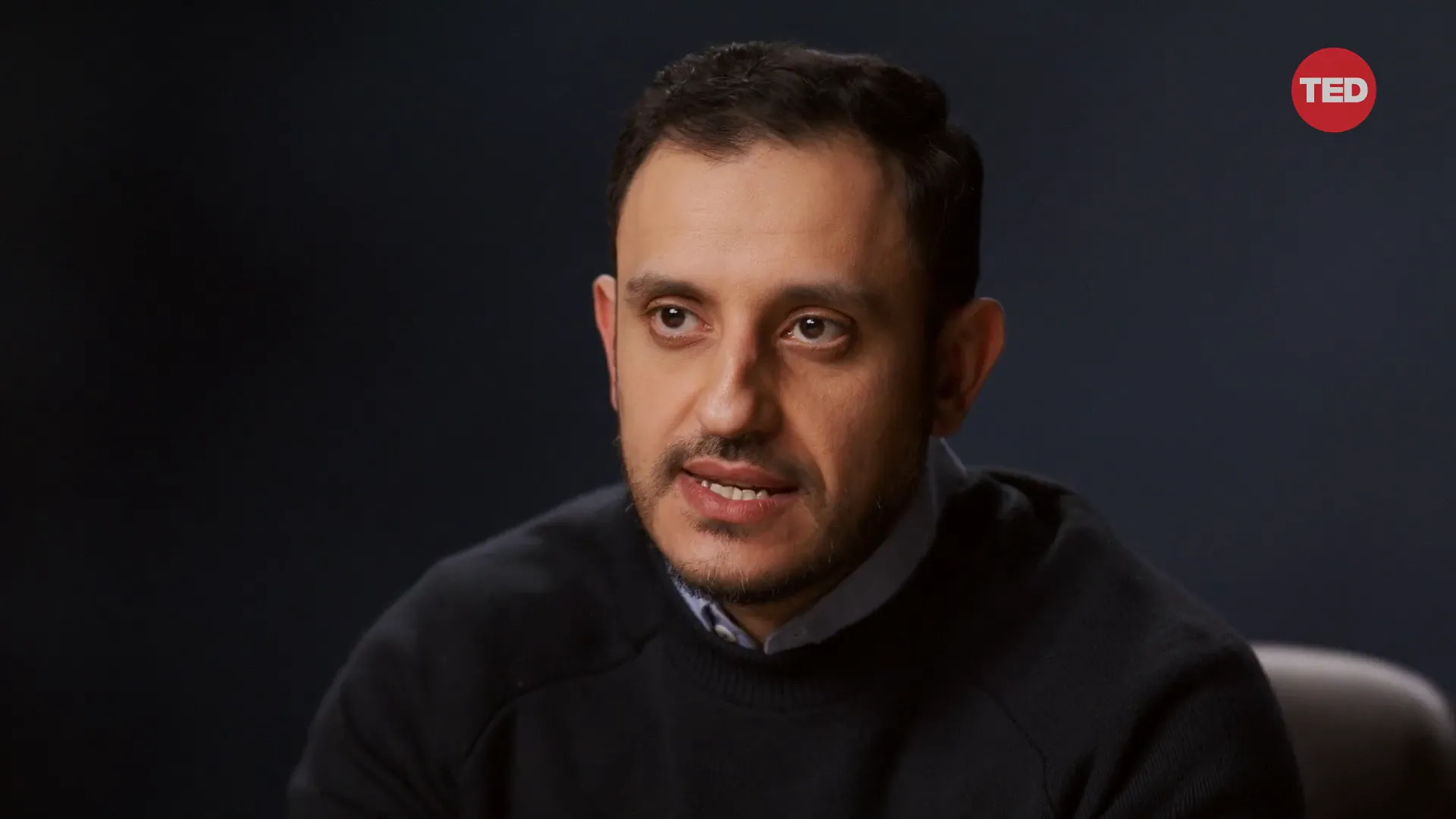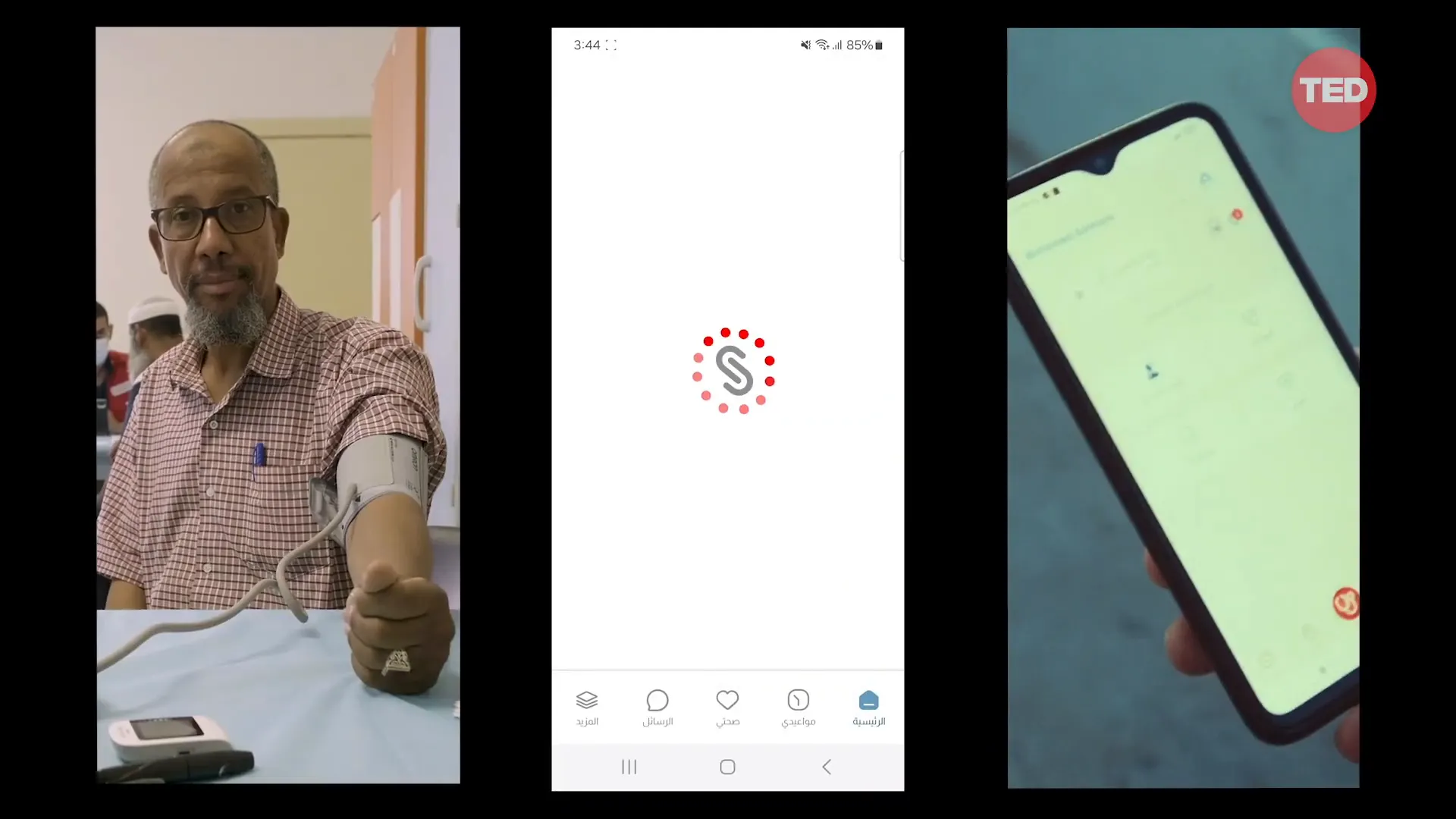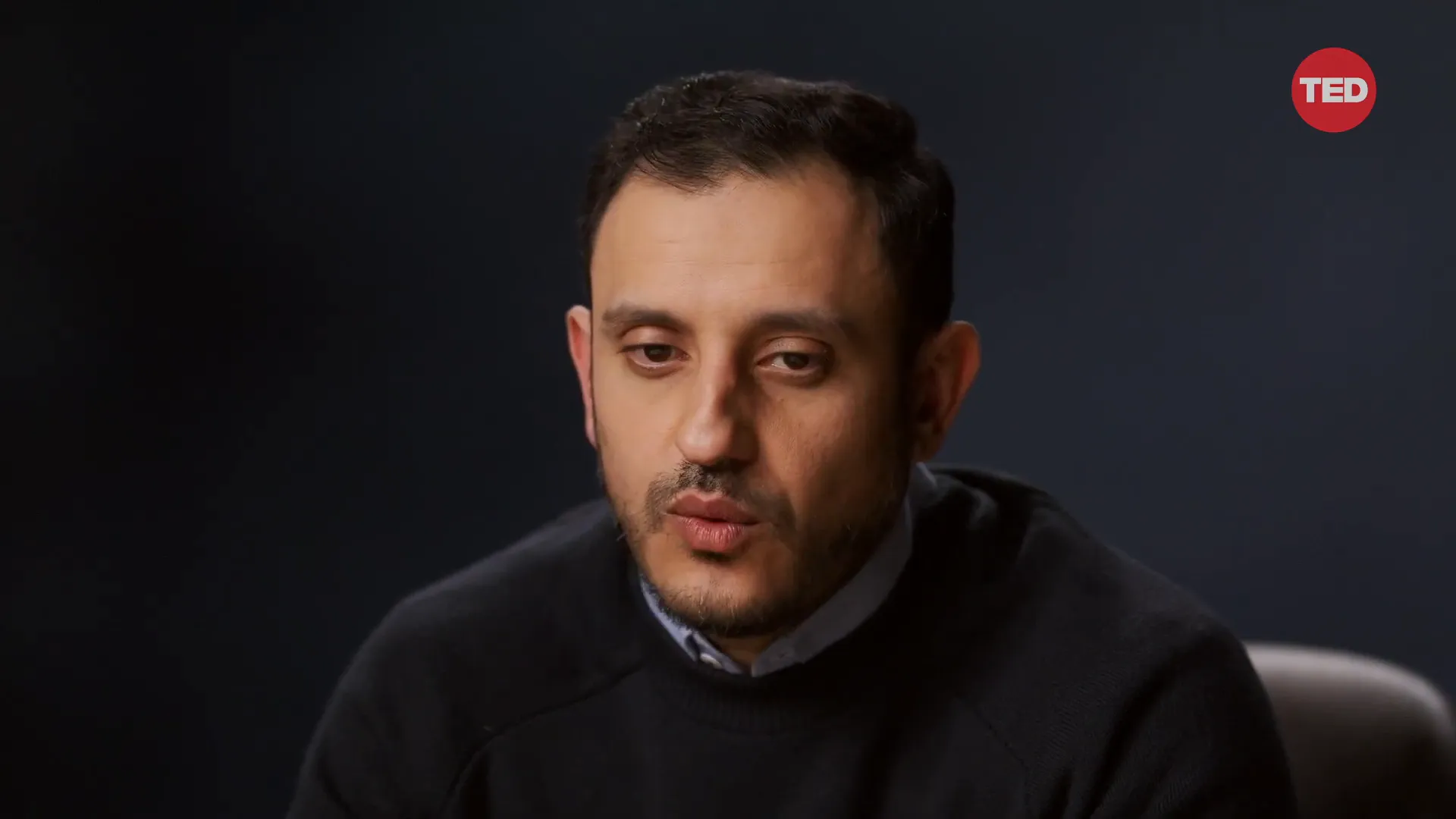May 20, 2025
Bridging Health Care Gaps: The Future of AI in Global Health
In a world where access to healthcare can be a matter of geography, Mohamed Aburawi presents a transformative vision of digital health through his platform, Speetar. By leveraging AI, he aims to connect underserved communities with medical professionals who understand their unique needs, ensuring that quality healthcare is accessible to all, regardless of location.
Introduction to the Healthcare Crisis
The global healthcare landscape is fraught with challenges that prevent millions from receiving adequate care. Many individuals are forced to seek medical attention beyond their borders, highlighting an urgent need for comprehensive solutions. Geographic, economic, and systemic barriers contribute to this crisis, leaving vulnerable populations without timely access to essential health services.
This situation is not merely a statistic; it represents real lives affected by inadequate healthcare infrastructure. For many, the journey to find care can be arduous and filled with obstacles that should not exist in a modern world.
Personal Stories: The Impact of Healthcare Access
Behind every statistic, there are personal stories that underscore the urgency of addressing healthcare access. Families often face heartbreaking decisions when medical care is unavailable in their communities. For example, some individuals recount the harrowing experience of transporting a loved one across borders in search of treatment, as local options have failed them.
These stories reveal the emotional toll of inadequate healthcare. Patients become desperate, and families are torn apart, all because they cannot find the care they need within their own country. The impact of these experiences is profound, shaping not only individual lives but entire communities.
The Limitations of Traditional Healthcare Solutions
Traditional healthcare solutions have proven insufficient in addressing the needs of underserved populations. Merely training more medical professionals or constructing additional hospitals is not enough. The sheer scale of the problem requires innovative approaches that go beyond conventional methods.
In many regions, the healthcare infrastructure is outdated, leading to inefficiencies and long wait times. Patients often find themselves in situations where they cannot receive care when they need it most, resulting in avoidable health complications.
- Lack of accessibility: Many areas lack basic healthcare facilities.
- High costs: Even when care is available, financial barriers often prevent individuals from seeking help.
- Insufficient training: Healthcare providers may not have adequate training to address specific community needs.
The Vision of an AI Doctor
The concept of an AI doctor presents a transformative opportunity to bridge the gap in healthcare access. Imagine an intelligent system capable of providing immediate medical advice tailored to individual circumstances. This innovation could revolutionize how patients interact with healthcare, offering support without the constraints of geography.
AI can analyze vast amounts of data, enabling it to offer contextualized solutions that consider local conditions and patient history. This could lead to more accurate diagnoses and tailored treatment plans, improving overall health outcomes.
By integrating AI into healthcare, we can ensure that every patient receives the attention and care they deserve, regardless of their location. This technology can serve as a lifeline for those who currently face insurmountable barriers to accessing healthcare services.
Introducing Speetar: A Digital Health Platform
Speetar stands at the forefront of this revolution, offering a digital health platform that connects patients in remote communities with physicians who understand their unique needs. By leveraging technology, Speetar aims to create a "hospital in the cloud," ensuring that quality healthcare is just a click away.
This platform enables patients to capture their medical histories in a digital format, making it accessible anytime, anywhere. With Speetar, individuals can manage their health records effectively, leading to better-informed healthcare decisions.

Challenges of Health Record Management
One of the most significant hurdles in healthcare delivery is the management of health records. In many regions, traditional methods of record-keeping are outdated, leading to incomplete or lost information. Patients often arrive at medical facilities without their health histories, making it challenging for providers to deliver appropriate care.
Speetar addresses this issue by allowing users to maintain their medical records digitally. Each patient's information is securely stored and can be easily shared with healthcare providers, ensuring that they have access to crucial data when needed.
Moreover, the platform continuously updates and cleanses this data, allowing for more accurate and efficient healthcare delivery. By streamlining health record management, Speetar empowers patients and helps providers deliver better care.
The Importance of Digital Health Records
Digital health records serve as the backbone of modern healthcare delivery. They provide a comprehensive view of a patient’s medical history, allowing healthcare providers to make informed decisions quickly. In areas where traditional record-keeping is inadequate, digital records ensure that critical information is available at the point of care.
For patients, having their medical history accessible through a digital platform means they no longer have to rely on physical documents, which can easily get lost or destroyed. This shift not only enhances the continuity of care but also empowers patients to take control of their health.

Building Comprehensive Patient Histories
Creating a complete and accurate patient history is essential for effective treatment. Digital platforms like Speetar allow patients to input their health data, including allergies, medications, and previous treatments. This information forms a dynamic record that evolves with the patient’s health journey.
Healthcare providers can access this data in real-time, leading to better diagnostic accuracy and tailored treatment plans. Furthermore, having a detailed patient history helps reduce the likelihood of medical errors, ensuring that patients receive the best possible care.
- Immediate access to patient information enhances decision-making.
- Accurate records minimize the risk of errors in treatment.
- Patients can update their information easily, ensuring it remains current.
Data Cleaning and Predictive Analytics
Once health data is collected, it’s crucial to maintain its quality through data cleaning processes. This involves identifying and correcting inaccuracies, ensuring that the information used for patient care is reliable. Clean data is essential for predictive analytics, which can forecast potential health issues based on historical trends.
Using advanced algorithms, Speetar can analyze patient data to predict future health events, allowing for proactive interventions. This capability not only improves individual patient outcomes but also helps healthcare systems allocate resources more effectively.

The New Data Economy: A Double-Edged Sword
As data becomes a valuable resource in healthcare, it also raises ethical questions. The new data economy emphasizes the importance of capturing as much information as possible. However, this approach can lead to exploitation, especially in underserved communities where data is harvested without adequate consent or benefit to the individuals providing it.
Moreover, the concentration of data in Western countries creates a disparity in healthcare solutions. AI models trained on this data may not accurately reflect the needs of diverse populations, leading to inequitable healthcare access and outcomes.
- Data should be collected ethically, with respect for patient privacy.
- AI models need diverse datasets to be effective across different populations.
- Healthcare systems must ensure that benefits of data utilization are shared with the communities involved.
The Need for Inclusive Data Collection
Inclusive data collection is vital for developing AI solutions that cater to a global audience. Many health systems currently overlook marginalized communities, resulting in AI tools that do not address their specific health challenges. To create effective healthcare solutions, it’s essential to gather data from a wide range of populations.
Speetar aims to bridge this gap by facilitating data collection from various regions, ensuring that the voices of underserved communities are included in the healthcare conversation. This inclusivity not only enriches the data pool but also leads to more equitable healthcare innovations.

The Risks of Western-Centric AI Solutions
The reliance on Western-centric AI solutions poses significant risks. These technologies often ignore the unique cultural, social, and economic factors that influence health in different regions. Assuming that a technology developed in one context will work seamlessly in another can lead to failure and frustration for both patients and providers.
To mitigate these risks, developers must collaborate with local healthcare professionals and communities. By understanding the specific needs and challenges of various populations, AI solutions can be tailored to provide relevant and effective care.
- Local input is crucial for developing relevant healthcare technologies.
- AI solutions must be adaptable to different cultural contexts.
- Collaboration with communities fosters trust and engagement in healthcare initiatives.
A Vision for the Future of Healthcare
The future of healthcare is one where technology and compassionate care intersect to create accessible solutions for all. Mohamed Aburawi’s vision for an AI-powered healthcare system is not just a dream; it is an achievable reality that can redefine how we think about medical care. Imagine a world where patients can receive immediate assistance tailored to their specific needs without the barriers of location or socioeconomic status.
This vision involves a multifaceted approach that includes integrating AI tools, enhancing telemedicine capabilities, and fostering collaboration among healthcare providers. The aim is to ensure that quality healthcare is not a privilege but a fundamental right for everyone.

Empowering Patients Through Technology
Empowering patients is at the heart of this vision. By providing individuals with access to their medical histories and real-time health information, we enable them to make informed decisions about their care. Digital platforms like Speetar facilitate this empowerment by allowing patients to manage their health records easily and communicate with healthcare professionals in their preferred language.
Moreover, AI can play a crucial role in monitoring patients’ health and predicting potential issues before they escalate. This proactive approach not only improves individual health outcomes but also alleviates pressure on healthcare systems by reducing the number of emergency interventions required.
- Access to personalized health information enhances patient engagement.
- AI-driven insights promote preventive healthcare measures.
- Telemedicine bridges gaps in healthcare access for remote communities.
Innovative Solutions for Diverse Needs
Innovation in healthcare must address the diverse needs of populations worldwide. This means developing solutions that are culturally sensitive and contextually relevant. By collaborating with local healthcare providers and understanding the unique challenges faced by different communities, we can create AI tools that truly serve those in need.
For instance, AI algorithms can be trained on diverse datasets that reflect the health issues prevalent in specific regions. This localized approach ensures that the solutions developed are effective and applicable, ultimately leading to better health outcomes for all.

Ensuring Equitable Healthcare Distribution
The equitable distribution of healthcare resources is vital to achieving a healthy global population. Despite advances in technology, disparities in access to care persist, often exacerbated by socioeconomic factors. To combat this, we must prioritize inclusivity in healthcare initiatives, ensuring that marginalized communities are not left behind.
One effective strategy is to implement mobile health clinics and telehealth services that reach underserved areas. These initiatives can provide essential services such as vaccinations, screenings, and health education directly to communities that need them most. By bringing healthcare to the people, we can dismantle the barriers that prevent access.

Collaboration Across Sectors
Collaboration is key to ensuring equitable healthcare distribution. Governments, non-profit organizations, and private sectors must work together to develop comprehensive strategies that address the root causes of healthcare disparities. This collaboration can include sharing resources, knowledge, and technology to create sustainable solutions.
Moreover, engaging local communities in the planning and implementation of healthcare initiatives fosters trust and ensures that the solutions developed are tailored to their specific needs. By giving communities a voice in their healthcare, we can create a more equitable system that serves everyone.
- Partnerships enhance resource sharing and innovation.
- Community engagement builds trust and ownership of health initiatives.
- Cross-sector collaboration leads to comprehensive healthcare solutions.
Leveraging Data for Better Outcomes
Data plays a crucial role in understanding healthcare needs and outcomes. By collecting and analyzing health data from diverse populations, we can identify trends and disparities that inform targeted interventions. This data-driven approach allows healthcare providers to allocate resources more effectively and address the specific needs of different communities.
However, it is essential to ensure that data collection is ethical and respects the privacy of individuals. Transparent practices and community involvement in data collection processes can build trust and promote better health outcomes.

Conclusion: The Path Forward
The path to a more equitable and effective healthcare system is paved with innovation, collaboration, and a commitment to understanding the diverse needs of populations. By embracing technology, such as AI and digital health platforms like Speetar, we can bridge the gaps in healthcare access and ensure that quality care is available to all.
As we move forward, it is imperative to keep the focus on inclusivity and community engagement. The voices of underserved populations must be heard, and their unique challenges must be addressed. Only then can we create a healthcare system that truly serves everyone, everywhere.

Frequently Asked Questions
What is the role of AI in healthcare?
AI plays a pivotal role in enhancing healthcare delivery by providing real-time insights, improving diagnostic accuracy, and enabling personalized treatment plans. It can analyze vast amounts of data to predict health issues and streamline patient care.
How can digital health platforms improve patient outcomes?
Digital health platforms empower patients by giving them access to their medical records, facilitating communication with healthcare providers, and enabling proactive health management. This increased engagement often leads to better health outcomes.
What challenges exist in implementing equitable healthcare solutions?
Challenges include addressing socioeconomic disparities, ensuring ethical data collection practices, and fostering collaboration among diverse stakeholders. Overcoming these obstacles requires a commitment to inclusivity and community involvement.
How can communities get involved in improving their healthcare access?
Communities can participate by voicing their needs, collaborating with healthcare providers, and engaging in health education initiatives. Local involvement is crucial for developing effective and relevant healthcare solutions.
Made with VideoToBlog